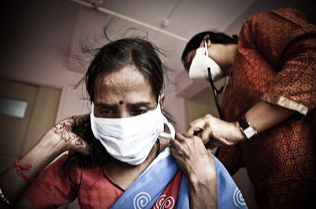Our children (and grandchildren) are the future and we are responsible for their growth and development. As responsible parties, we are clearly failing.
Our children (and grandchildren) are the future and we are responsible for their growth and development. As responsible parties, we are clearly failing.
That is my interpretation of the report issued a few days ago by the Centers for Disease Control (CDC) on seven criteria known to the associate with ideal cardiovascular health as part of the National Health and Nutrition Examinination Survey. They are defined, briefly, as 1) a diet with 4 ½ servings of fruits and vegetables per day, 3 servings of whole grains per day, fish twice per week, no more than 1500 mg of sodium (salt) per day, and less than 36 oz of sweetened drinks per week. Also 2) a normal body mass index (BMI) which roughly means not being overweight, 3) not smoking, 4) having at least one hour of physical activity per day, 5) a normal level of cholesterol, 6) normal blood pressure and 7) normal blood glucose (blood sugar.)
Infants start out life with a normal risk for heart disease but risk increases rapidly from preteens and into adolescence. We have known for some time that kids are getting less and less exercise, even less as they progress into the teenage years.
But this new report is striking. Not one child out of 4157 aged 12 to 17 in the study group monitored between 2003 and 2008 was in the “ideal” category for diet. And only 16% of the boys and 11% of the girls were in the ideal range for all of the remaining six categories.
Looked at differently, 20% were obese (not just overweight); about 20% smoked; about 50% had too little physical activity; cholesterol was elevated in about 30%; and glucose was somewhat high in about 40%. One bright spot – blood pressure was elevated in less than 10%.
This report is important for at least two reasons. We know that atherosclerosis begins to build up in childhood and young adults even though angina and heart attacks are not common until a few decades later. It is essential to maintain a healthy lifestyle and this needs to begin in childhood. Second, we know that the 7 criteria are each associated with a lessening of heart disease risk when kept to the normal or ideal level (diet, weight, not smoking, etc) and that each, when not meeting the standards, add together to increase the risk of cardiovascular disease in later life.
These are not impossible standards to meet. Diet might be most difficult, especially for kids in urban or rural poor areas who have less access to fresh fruits and veggies but there is little excuse for over indulging in salt and sodas. One big problem is the ready availability of processed foods – foods high in salt, fat and sugars including high fructose corn syrup – along with ubiquitous sodas, often in very large containers.
Parents – they are your children. They need good food, they need lots of activity, and they need parental support to avoid tobacco and processed foods. They are your (and all of our) future.








